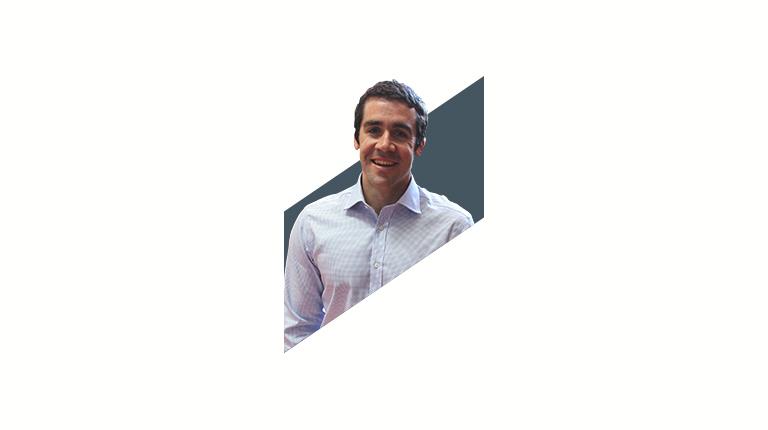Are memories stored in DNA?
Geoff Faulkner is testing a bold idea— he thinks long-term memory might be stored in our brain’s DNA. If he’s right, it will revolutionise both our understanding of life’s blueprint and how we manage diseases like schizophrenia and Alzheimer’s.
There is DNA in every human cell called ‘junk’ or ‘non-coding’ DNA which our bodies don’t use to generate proteins, the building blocks of life. This DNA makes up over 98 per cent of our genome. Surely it must do something. The question is: what?
Geoff Faulkner has been studying this question for years with his team from the Mater Research Institute-University of Queensland. Now, working with the Queensland Brain Institute (QBI), the CSL Centenary Fellowship will enable him delve deeper, using brains bequeathed by Alzheimer’s patients.
The research will focus on genetic components that can move and replicate during cell division. They’re called L1 retrotransposons and make up 17 per cent of our genome. Geoff has already proven the amount of L1 movement is higher in brain neurons than other body cells and that we might acquire more L1 movements in the brain as we age.
More recently, he’s linked the amount of L1 movement to the function of genes in the hippocampus, the part of the brain that controls memory and spatial navigation, and has been implicated in memory loss with ageing, schizophrenia and Alzheimer’s disease.
By studying brains from Alzheimer’s patients, Geoff will be paying tribute to their generosity in donating post-mortem brain tissue by looking for answers as to why this devastating condition develops.
Firstly, Geoff is looking to define the mobilisation of L1 in the brain, including its distribution and impact within the hippocampus. Then he’ll assess whether L1 movement is modulated by environmental stimulation and plays a role in memory formation. Finally, he hopes to establish the significance of reduced L1 abundance in Alzheimer’s patients.
These efforts may move us toward therapies that help restore cognitive function. They also build on a long history of cutting-edge neuroscience research in Australia, including the career of 2015 CSL Florey Medal winner and inaugural QBI Director Professor Perry Bartlett, whose revolutionary discoveries changed our understanding of stem cells, dementia and the human brain.
Geoff’s own research career began as an undergraduate at the University of Queensland. He has since attained more than $28 million in research funding, published more than 45 papers in peer reviewed journals and won a series of fellowships and awards. His biggest achievement to date was a seminal paper in the journal Nature describing L1 movements in the human brain, which was nominated the ‘joint No. 1 research advance of 2011’ by the US National Institute of Mental Health.
The CSL Centenary Fellowship puts Geoff in the strongest position of his career to answer the fundamental question of how changes to DNA during life affects how the brain functions.
Geoff Faulkner is testing a bold idea— he thinks long-term memory might be stored in our brain’s DNA. If he’s right, it will revolutionise both our understanding of life’s blueprint and how we manage diseases like schizophrenia and Alzheimer’s.
There is DNA in every human cell called ‘junk’ or ‘non-coding’ DNA which our bodies don’t use to generate proteins, the building blocks of life. This DNA makes up over 98 per cent of our genome. Surely it must do something. The question is: what?
Geoff Faulkner has been studying this question for years with his team from the Mater Research Institute-University of Queensland. Now, working with the Queensland Brain Institute (QBI), the CSL Centenary Fellowship will enable him delve deeper, using brains bequeathed by Alzheimer’s patients.
The research will focus on genetic components that can move and replicate during cell division. They’re called L1 retrotransposons and make up 17 per cent of our genome. Geoff has already proven the amount of L1 movement is higher in brain neurons than other body cells and that we might acquire more L1 movements in the brain as we age.
More recently, he’s linked the amount of L1 movement to the function of genes in the hippocampus, the part of the brain that controls memory and spatial navigation, and has been implicated in memory loss with ageing, schizophrenia and Alzheimer’s disease.
By studying brains from Alzheimer’s patients, Geoff will be paying tribute to their generosity in donating post-mortem brain tissue by looking for answers as to why this devastating condition develops.
Firstly, Geoff is looking to define the mobilisation of L1 in the brain, including its distribution and impact within the hippocampus. Then he’ll assess whether L1 movement is modulated by environmental stimulation and plays a role in memory formation. Finally, he hopes to establish the significance of reduced L1 abundance in Alzheimer’s patients.
These efforts may move us toward therapies that help restore cognitive function. They also build on a long history of cutting-edge neuroscience research in Australia, including the career of 2015 CSL Florey Medal winner and inaugural QBI Director Professor Perry Bartlett, whose revolutionary discoveries changed our understanding of stem cells, dementia and the human brain.
Geoff’s own research career began as an undergraduate at the University of Queensland. He has since attained more than $28 million in research funding, published more than 45 papers in peer reviewed journals and won a series of fellowships and awards. His biggest achievement to date was a seminal paper in the journal Nature describing L1 movements in the human brain, which was nominated the ‘joint No. 1 research advance of 2011’ by the US National Institute of Mental Health.
The CSL Centenary Fellowship puts Geoff in the strongest position of his career to answer the fundamental question of how changes to DNA during life affects how the brain functions.



